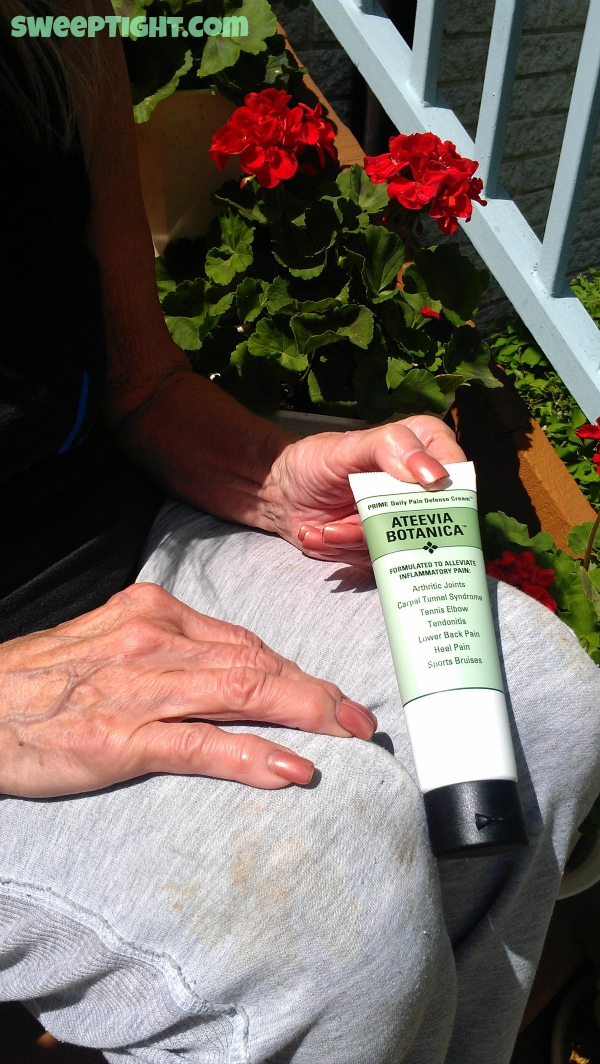10 Easy Self-Care Practices You Can Start Today
Deep Breathing Exercises

Think of deep breathing as your personal reset button when life gets overwhelming. Self-care means taking the time to do things that help you live well and improve both your physical health and mental health. This can help you manage stress, lower your risk of illness, and increase your energy. Even small acts of self-care in your daily life can have a big impact. A simple deep breathing technique can activate your body’s natural relaxation response within just a few minutes.
The beauty of breathing exercises lies in their simplicity and immediate availability. When you’re feeling stressed at work or home, just take five minutes to breathe deeply through your nose for four counts, hold for four, then exhale through your mouth for six counts. You don’t need any special equipment or location – you can do this anywhere, from your car to your kitchen. Your nervous system will thank you for this instant dose of calm.
Daily Mindfulness Meditation

The amount of time spent on meditating has grown by 2,900% since March 2020. This explosive growth reflects how people worldwide have discovered meditation’s remarkable benefits for mental health and wellbeing. Meditation can reduce stress levels, which translates to less anxiety. 2014 meta-analysis including nearly 1,300 adults found that meditation may decrease anxiety. Notably, this effect was strongest in those with the highest levels of anxiety.
Nearly 9 in 10 people stated that meditation and mindfulness helped reduce stress or aid relaxation, while almost 4 in 5 adults said that their overall health improved. Starting a meditation practice doesn’t require hours of sitting in silence. Even ten minutes of guided meditation using a free app can significantly improve your mood and stress levels. The key is consistency rather than duration – it’s better to meditate for five minutes every day than for an hour once a week.
Prioritizing Quality Sleep

Sleep isn’t just about rest – it’s your body’s essential repair and recovery time. With about one-third of U.S. adults routinely falling short on sleep, many people are likely looking for ways to sleep better. In many studies, how and what a person eats have been found to impact how long and how well they sleep. For example, diets low in fiber, high in saturated fat, or high in sugar have been linked to sleep that isn’t as restorative.
Creating a consistent bedtime routine can transform your sleep quality almost immediately. Try setting a digital curfew one hour before bed, keeping your bedroom cool and dark, and avoiding caffeine after 2 PM. The most common sleep hygiene recommendations refer to smoking, alcohol, caffeine, daytime naps, stress, noise, time outdoors, and exercise. It is important to avoid the factors that influence the deterioration of sleep quality, such as smoking, alcohol consumption, excessive stress, or excessive caffeine intake in the diet. Think of sleep as the foundation that supports all your other self-care efforts.
Regular Physical Movement

Forms of exercise including yoga have been associated with increased physical strength, mood, self-image, quality of life and decreased feelings of depression and anxiety. When exercising, the body releases chemicals that can improve focus, memory, sleep and decision-making. Additionally, engaging in regular physical activity can reduce cortisol levels and inflammation in the body, targeting feelings of stress.
You don’t need to become a gym enthusiast to reap the benefits of physical activity. A brisk 20-minute walk around your neighborhood, some gentle stretching, or dancing to your favorite songs all count as meaningful movement. The results were mainly positive in PA’s effect on sleep duration and sleep onset regarding physical activity. The relationship was as follows: wherever the exercise rate increased, the amount of sleep improved. The secret is finding activities you genuinely enjoy, because when exercise feels like play rather than punishment, you’re much more likely to stick with it.
Staying Properly Hydrated

Most adults need to drink around two liters of water every day, though you may need more if you exercise, breastfeed, or are sick. Proper hydration affects everything from your energy levels to your skin health, yet it’s one of the most overlooked aspects of self-care. Hydration plays a crucial role in regulating body temperature. Dehydration can impact the sleep-wake cycle and overall duration of sleep.
Making hydration easier starts with keeping water visible and accessible throughout your day. Carry a water bottle with you and sip from it regularly. If you don’t enjoy the taste of plain water, try flavoring it with lemon, mint leaves, or fresh berries. You can also increase your water intake through food choices. You don’t need to get all your water from beverages. You can also increase your water intake by eating fruits and vegetables with high liquid content, such as watermelon, pears, oranges, spinach, squash, and carrots.
Building Strong Social Connections

Spending time with loved ones has been associated with reduced feelings of loneliness, decreased anxiety and overall increased feelings of happiness. More specifically, researchers have found that social connection releases similar chemicals in the body as physical exercise, improving our mood and strengthening our resiliency skills. Human beings are inherently social creatures, and meaningful relationships serve as powerful buffers against stress and mental health challenges.
You don’t need a huge social circle to benefit from connection – quality matters more than quantity. Scheduling regular coffee dates with a close friend, calling a family member weekly, or joining a community group based on your interests can all provide vital social support. Even brief positive interactions with neighbors or coworkers can boost your mood and sense of belonging throughout the day.
Eating Nourishing Foods

Eat a variety of foods including whole grains, nuts, lots of fruit, and vegetables, and legumes like lentils and beans. And don’t forget foods from animal sources like meat, fish, eggs and milk. The foods you choose don’t just fuel your body – they directly impact your mood, energy levels, and overall wellbeing throughout the day.
A balanced diet contains adequate amounts of three types of macronutrients: carbohydrates, fat, and protein. In terms of carbohydrates, whole grains are preferred over simple carbohydrates and highly processed grains, as they are healthier and may improve sleep. Studies have also found that consuming too much or too little protein can negatively impact sleep. Small changes like adding more colorful vegetables to your meals, choosing whole grains over refined ones, and including healthy fats like avocados or nuts can make a substantial difference in how you feel.
Taking Regular Nature Breaks

Good mental health is vital to our overall health and well-being. Things that help us look after our mental health include following a healthier lifestyle; spending time in nature and outdoors; talking to family and friends; getting a good night’s sleep; managing stress and limiting ‘high-risk’ situations; talking about mental health problems as they arise and seeking help when needed. Something magical happens when we step outside and connect with the natural world around us.
You don’t need to live near mountains or beaches to benefit from nature’s healing power. Even a few minutes in your backyard, tending to houseplants, or walking through a local park can reduce stress hormones and improve your mental clarity. In the long term, it can give you increased strength and stamina, reduced fatigue, and something to look forward to in the future, which can bring you feelings of joy throughout the week. The Many Mental Health Benefits of Gardening. Try to incorporate at least one outdoor moment into your daily routine, whether it’s eating lunch outside or taking a phone call while walking.
Practicing Emotional Regulation

Emotional regulation is the practice in which humans process their emotions, consciously or subconsciously. With healthy emotional regulation skills, people respond to stressful stimuli in adaptive manners, allowing them to adjust as needed without becoming overwhelmed or defeated. Learning to manage your emotions doesn’t mean suppressing them – it means developing healthier ways to process and respond to what you’re feeling.
When challenging situations arise, pause and ask yourself what you’re actually feeling before reacting. Name the emotion specifically rather than just saying you feel “bad” or “stressed.” This simple practice of emotional labeling can reduce the intensity of negative feelings and help you respond more thoughtfully rather than reactively. Remember that all emotions are valid, but not all responses to them are helpful.
Setting Healthy Boundaries

Beneficial effects of self-care include improved well-being and lower morbidity, mortality, and costs. One of the most crucial aspects of self-care involves learning to say no to demands that drain your energy and yes to activities that restore it. Healthy boundaries aren’t about being selfish – they’re about sustainable living that allows you to show up fully for what matters most.
Start by identifying situations or people that consistently leave you feeling depleted or stressed. Practice phrases like “I need to check my schedule” or “That doesn’t work for me” to buy yourself time before committing to requests. Remember that every yes to something that doesn’t serve you is a no to something that could. Protecting your time and energy isn’t mean – it’s necessary for your wellbeing and your ability to help others from a place of strength rather than depletion.
Conclusion: Your Self-Care Journey Starts Now

The beneficial effects of self-care include improved well-being and lower morbidity, mortality, and healthcare costs. These ten self-care practices aren’t meant to overwhelm you with another to-do list – they’re tools to help you feel more balanced, energized, and resilient in your daily life. The beauty of self-care lies not in perfection but in consistency and self-compassion.
Start with just one or two practices that resonate most with you right now. Maybe it’s those five minutes of deep breathing during your lunch break, or perhaps it’s that evening walk around the block you’ve been putting off. As these small actions become natural parts of your routine, you can gradually add more elements. Self-care looks different for everyone, and it is important to find what you need and enjoy. It may take trial and error to discover what works best for you. Which practice will you try first today?






